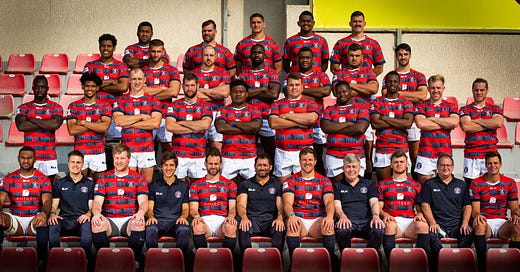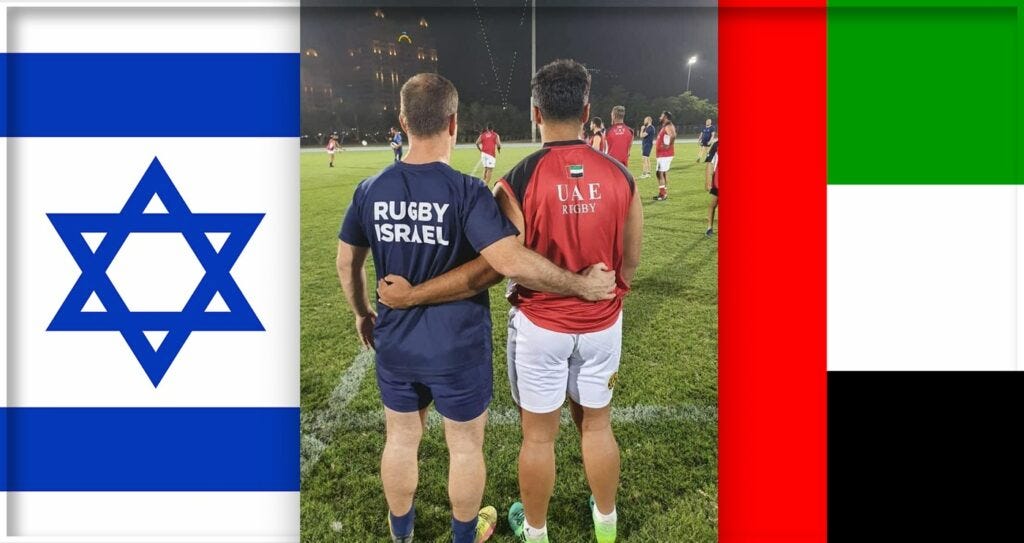SA Rugby’s shameful withdrawal of Israel’s invitation
It is only outside of Israel and under the influence of the BDS movement, that there is division where the Jewish people are removed from the conversation.
On Friday 3rd February, the South African Rugby Union (SARU) withdrew their Mzanzi Challenge invitation to international qualifying team, Tel Aviv Heat.
The SARU statement about the matter reads as follows: ““We have listened to the opinions of important stakeholder groups and have taken this decision to avoid the likelihood of the competition becoming a source of division, notwithstanding the fact that Israel Is a full member of World Rugby and the IOC,” said Mr Mark Alexander, president of the South African Rugby Union.“
It hopefully need not be said that the act of dividing people is, in fact, a “source of division”. Mr Alexander perhaps does not see this irony in his statement.
When politicians snub Israel one can at least see it is done because they think they have something to gain from it. Indeed the incentive to hate the Jewish State is there in multiple ways: firstly, it brings money to said politicians / governments; secondly, it brings more votes than the unpopular embrace of the Jewish people simply living in their homeland; thirdly, and sadly, antisemitism is deeply ingrained in society and so snubbing the Jewish State gives people a sense of being holier than thou; fourthly, people tend to band together with those who they actually deem the greater threat, as it gives them some false notion of being ‘safe’ from said threat. It indeed takes true honour and courage to stand up to a threat.
Now, SARU gains absolutely none of the above, except perhaps a small overlap with the fourth point – less fear. Dare I say that this is a rather feeble way to respond to what SARU’s statement refers to as “opinions of important stakeholder groups”.
Who are the alleged stakeholders?
Neither the South African Zionist Federation, nor the South African Friends of Israel, nor the South African Jewish Board of Deputies, nor the Israeli Embassy were included in said group of stakeholders. Tel Aviv Heat itself, a stakeholder indeed, was not consulted of course.
That sport brings people together is certainly something that need not be explained to SARU or Mr Alexander. In Israel, within every aspect of society including sport, people of all walks of life are together. It is only outside of Israel and under the influence of the Boycott, Divestment and Sanctions (BDS) movement, that there is division where the Jewish people, or anyone deemed “supporting the Jewish people”, are removed from the conversation.
Tel Aviv Heat’s statement on the matter reads “Tragically, though SARU indicated the intention “to avoid the likelihood of the competition becoming a source of division”, the decision to block the Tel Aviv Heat from participating in the Mzansi Challenge will only sow further division in South Africa and beyond by bolstering voices dedicated to vilify, demonize, and censor those who do not share their views.
In the end, SARU’s decision runs contrary to the spirit and core values of rugby, promotes the politics of hatred and retribution over the best interests of sport, and exposes the Tel Aviv Heat and its supporters to being targeted by aggressive, hateful language designed to intimidate, delegitimize, and silence.”
Tel Aviv Heat was booted just as excitement was building. Demoralising to say the very least. Another wrong move by South Africa.
According to a News24 article published on Monday, SARU is facing a possible R258 million budget deficit for the year, and is also struggling to find a sponsor for the Currie Cup which is alleged to have compounded their financial woes.
Given BDS’ extremely sizeable funds, the sources of which may or may not be rather questionable, perhaps SARU would do well to request a donation. After all, SARU inadvertently did the bidding of the damaging and conflict-inspiring organisation for nothing.





